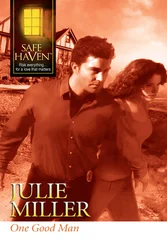Andrew Miller - One Morning Like a Bird
Здесь есть возможность читать онлайн «Andrew Miller - One Morning Like a Bird» весь текст электронной книги совершенно бесплатно (целиком полную версию без сокращений). В некоторых случаях можно слушать аудио, скачать через торрент в формате fb2 и присутствует краткое содержание. Год выпуска: 2009, Издательство: Sceptre, Жанр: Историческая проза, на английском языке. Описание произведения, (предисловие) а так же отзывы посетителей доступны на портале библиотеки ЛибКат.
- Название:One Morning Like a Bird
- Автор:
- Издательство:Sceptre
- Жанр:
- Год:2009
- ISBN:нет данных
- Рейтинг книги:4 / 5. Голосов: 1
-
Избранное:Добавить в избранное
- Отзывы:
-
Ваша оценка:
- 80
- 1
- 2
- 3
- 4
- 5
One Morning Like a Bird: краткое содержание, описание и аннотация
Предлагаем к чтению аннотацию, описание, краткое содержание или предисловие (зависит от того, что написал сам автор книги «One Morning Like a Bird»). Если вы не нашли необходимую информацию о книге — напишите в комментариях, мы постараемся отыскать её.
One Morning Like a Bird — читать онлайн бесплатно полную книгу (весь текст) целиком
Ниже представлен текст книги, разбитый по страницам. Система сохранения места последней прочитанной страницы, позволяет с удобством читать онлайн бесплатно книгу «One Morning Like a Bird», без необходимости каждый раз заново искать на чём Вы остановились. Поставьте закладку, и сможете в любой момент перейти на страницу, на которой закончили чтение.
Интервал:
Закладка:
From the drying platform he watches Kyoko at the edge of the pond crumbling dried silkworm for her carp. He whistles to her — a soft, low whistle. She turns her head, but before she can find him the old woman rolls out of the house on her chilblained feet and immediately looks up to the platform. Startled, he steps back, hides behind the quilt airing over the drying poles. He wonders if his legs are still on view. He wonders if the old woman is possessed.
That afternoon he rings Makiyama’s office. Ito, one of his assistants, answers the phone. Makiyama isn’t there. Ito has nothing intelligent to say. Yuji hangs up. To find Makiyama he will have to hunt him, bar by bar, along the Ginza. But not today.
For supper they eat seven-herb stew. Dr Kushida is their guest. He informs Father that their colleague from Imperial, Mr Amano, has died of a brain seizure. Father nods, puffs on his cigarette. Yuji, touched by the sake, almost asks, ‘But is it serious?’
Night. On stockinged feet he comes down the stairs to fetch water from the kitchen. He steps over Miyo, who’s sighing in a dream as though some lover was with her, the soy-seller’s son perhaps, tampering with her virginity. In the Western room, a thin light spills over the rug as far as the circular dining table. He steps inside. The screens to the Japanese room are open and the light is coming from the box-lamp beside the alcove. Father is there, sitting cross-legged, surrounded by his collection of incense burners. He is cleaning them, wiping each one carefully with a cloth. On the dresser (next to the photograph of Father and Mother, stiff as dolls, outside the shrine on their wedding day), the hands of the clock stand at twenty to two, Thursday morning.
11
On the fourth day of the second month, the day of the Season-changing Festival, Yuji cycles through a dusk of lightly falling snow to the year’s first full meeting of the French Club. Arriving, he leans his bicycle against a drainpipe, unwinds the scarf from about his face, and rings the bell, a brass bell, round and scalloped like a flower.
He likes this ritual of ringing and waiting on the step. The house is a little fortress sealed off by red-brick walls, by the black panels of a stout wooden door. Unlike his own home — unlike almost any Japanese home — the inquisitive world cannot simply announce itself with a cry then get halfway in and crane its neck to see round a screen. It’s true, of course, there are windows, large ones, but those on the street are usually shuttered, while those on the upper floor give little away beyond a reflection of roofs and sky, or at night a thread of light between the curtains. It is, he believes, the sort of house the heroes and heroines (not the grandest, of course) of the novels he has read might live in, in Paris or London, or, more particularly, in Moscow or St Petersburg, for the house was built by a Russian in the year after the Nicholai Cathedral was finished. A foreign outpost in the hills of Kanda, a house — despite the new spirit in Japan, that disinterred hostility to the world beyond the black lines of the coasts — he is proud to be seen going into, and which, in the privacy of his own thoughts, he calls my house of life .
He is expecting Hanako, Feneon’s maid, to answer the bell, but it’s Feneon himself, tall, grey-eyed and dressed in an ankle-length smoking jacket of goose-grey silk, who ushers Yuji inside, the pug, Beatrice, peeping from between his slippers.
As he has hoped, Yuji is the first to arrive. He shakes off his boots and follows Feneon through the hall to the salon, where, in the centre of the room, Hanako is on her knees by the stove, grimacing and crimson-faced as she thrusts a poker into its mouth. The stove is a relict of the house’s original owner, a cask of black iron forged in a Russian foundry for Russian winters and decorated on its sides with a frieze of wild animals, birch trees, iron stars.
Alissa is sitting at the end of the sofa next to a lamp, an open book on her lap. There is no kimono tonight. Instead, she is wearing a black woollen dress, black stockings, a little red jacket fastened with a row of black buttons. Her hair, which at the year-forgetting party was arranged Shimada-style, is now in a simple glossy plait secured by a black ribbon. Her stick is propped against the rolled leather of the sofa’s arm.
‘Not much like spring, is it?’ she says, glancing behind her to the garden window, where snow flickers in the house light and lies along the grey limbs of the magnolia tree. To answer her, Yuji explains that the official opening of spring is not intended to indicate any imminent improvement in the weather but is connected to the yearly cycle of agriculture, the advent of a new planting season, the need for the community to purify itself through rituals such as the scattering of beans and the lighting of sacred fires. He knows, of course, she knows all this, knows it as well as he does himself, but she has spoken to him in Japanese and he wishes to rebuke her for it. On club nights he expects her to speak French. It is, in fact, a rule.
‘To warm you up a little,’ says Feneon, handing Yuji a dainty glass in which a mouthful of eau de vie is trembling. He gives a second glass to his daughter, then returns to the drinks table behind the piano for his own glass.
‘And what shall our toast be?’ he asks. ‘Health and happiness?’
‘An end to stupid wars,’ says Alissa.
‘Or at least,’ says Yuji, who here, in a borrowed language, has the dizzying sense he can say those things it would be most unwise to say anywhere else, ‘at least, perhaps, an end to conscription?’
Feneon rests a hand on his shoulder. Yuji hardly dares to breathe. They raise their glasses, sip, swallow. The doorbell rings. Beatrice leaps from the sofa and pursues Hanako into the hall.
‘Things will work out,’ says Feneon. ‘They usually do, somehow.’
‘The Emperor will come to his senses,’ says Alissa. ‘He’ll deal with the warmongers.’
‘The Emperor?’ says Feneon. ‘It seems to me we know very little about him. I’m not sure we should depend on him doing anything decisive.’
‘And in Europe,’ asks Yuji, wishing to remove the name of His Sacred Majesty from the conversation before they are intruded upon, ‘what can people depend on there?’
‘Oh,’ says Feneon, shaking his head, ‘on France making lots of speeches, being brave but at the same time utterly incompetent. On England making treaties, then looking after nothing but her own interests. On the Germans being good at catching trains and reducing everything to rubble. On the Russians . . well, who can tell what our friends the Russians will do?’
‘Arrive in Tokyo,’ says Alissa, ‘if the army keeps provoking them. It’s not 1904 any more. There’s Zhukov’s tanks to deal with this time.’
Taro, Junzo, Shozo and Oki enter the room, laughing together and rubbing their hands. They bow to Feneon then make a half-circle round the stove. At Junzo’s feet the dog dances on her hind legs. Junzo takes a square of chocolate from his pocket, reaches down and lets her, with her soft muzzle, her little tongue, eat from his hand.
‘Junzo’s the kindest of you,’ says Alissa.
‘Because he gives chocolate to an animal?’ asks Oki.
‘Animal!’ says Feneon. ‘Beatrice is a beautiful woman bewitched on the road by a goblin. If one of you would just agree to kiss her, I’m sure she’d change back to her old form. Don’t any of you want to get married?’
The young men, gazing at the dog, colour slightly and say nothing. Feneon, smiling to himself, goes to the table and fills more of the dainty glasses. They drink, give back the glasses, then file past the carved oak door into Feneon’s study. On the desk the projector is raised on a plinth of books ( A Cochin Almanac, Warren’s Encyclopaedia of Industry , a volume of Darwin, of Malthus), its brass-bound lens aimed at a linen tablecloth stretched and pegged over the bookshelves. Alissa, with the pug in her lap, sits on the swivel-chair behind the desk, while the others take their places on the rug. Feneon, with the cuff of his smoking jacket, gives the lens a last polish. When he’s satisfied, he nods to Hanako, who pushes up the switch on the wall by the door. There’s a second of utter darkness, then the whirr of the projector’s motor, the ticking of spools, a cone of white light, the pulsing of numbers on the cloth and finally, appearing out of the broken grey like something surfacing at sea, the film’s title: Pay Day .
Читать дальшеИнтервал:
Закладка:
Похожие книги на «One Morning Like a Bird»
Представляем Вашему вниманию похожие книги на «One Morning Like a Bird» списком для выбора. Мы отобрали схожую по названию и смыслу литературу в надежде предоставить читателям больше вариантов отыскать новые, интересные, ещё непрочитанные произведения.
Обсуждение, отзывы о книге «One Morning Like a Bird» и просто собственные мнения читателей. Оставьте ваши комментарии, напишите, что Вы думаете о произведении, его смысле или главных героях. Укажите что конкретно понравилось, а что нет, и почему Вы так считаете.












